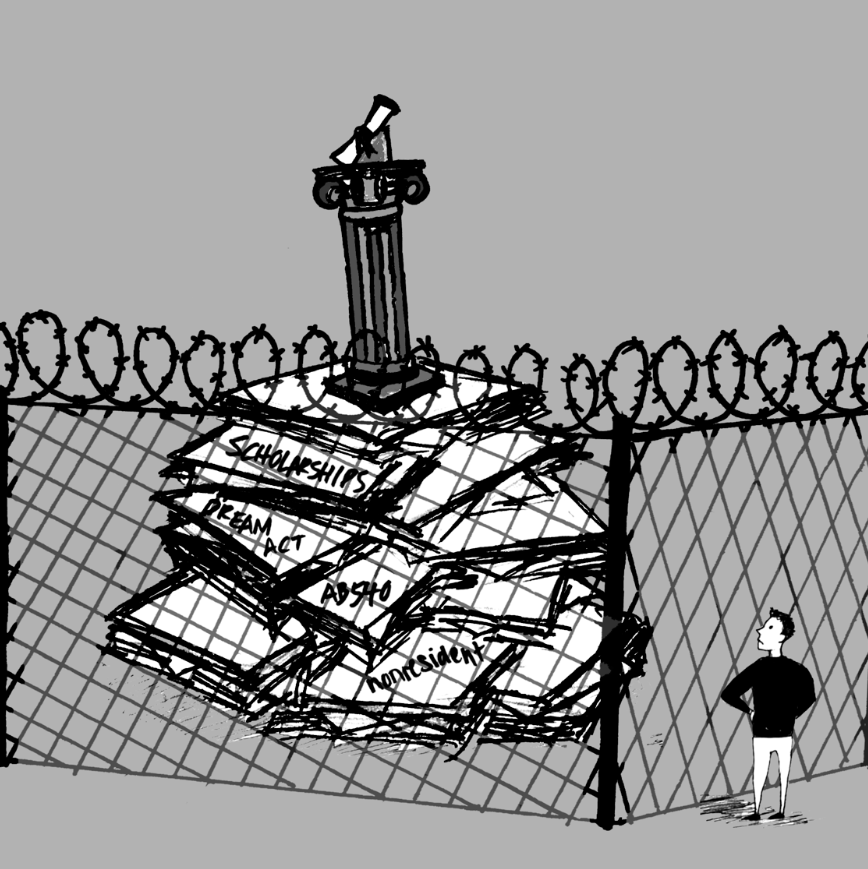Restrictions bury dream
Undocumented students bend to financial aid criteria
Sep 28, 2016
Financial aid restrictions on undocumented students who do not meet certain criteria are counterproductive for an institution funded by its enrollment.
But that is exactly what is happening here at Contra Costa College and statewide.
CCC Counseling Office assistant Leticia Mendoza said, “When (some) undocumented students (visit the Welcome Center) I refer them to adult school. There is really not much we can do (for them).”
Most of these students emigrated from Mexico, Central America or South America as children or teenagers with their families.
Some undocumented students do not meet the requirements in California’s AB 540, Deferred Action for Childhood Arrivals (DACA-2012), or the federal government’s Development, Relief and Education for Alien Minors Act (DREAM-2009).
These students are expected to pay nonresident tuition at $269 per unit.
So if an undocumented student takes 15 units, he or she is expected to pay about $8,000 in tuition per year.
One example of leadership that helps undocumented students is the creation of booklets that provide information about legislation, financial aid and the personal experiences of other students.
CCC’s Hispanic Serving Institute/STEM Coordinator Mayra Padilla and CCC alumna Valeria Avila allocated $25,400 to fund the project.
According to the Chancellor’s Office Special Population Report, for 2015-16 about 692,000 California community college students have parents who did not receive an associate or bachelor’s degree.
Making a resource booklet for undocumented students is a good idea but it does not help undocumented students who cannot afford nonresident unit fee costs.
Undocumented students left out are those who arrived five years after these laws were passed, were older than 16 when they came to the U.S. and did not complete three years of high school. They cannot receive financial aid, like the California Board of Governors fee waiver or federal FAFSA funds.
An AB 540 affidavit verifies that a student meets educational requirements and certifies that there is intent to establish residency in California to receive financial aid. And through DACA and DREAM students can receive state and some federal grants.
Latinos make up about 43 percent of the 2.3 million community college students statewide, and 40 percent of the nearly 9,000 students at CCC according to the state Chancellor’s Office online DataMart 2015-16 Enrollment Report.
Many of these prospective college students have parents who raise their children with a mindset that if they draw attention to themselves they could be deported.
Undocumented students ineligible to receive financial aid need organizations like the CCC Associated Student Union to create discussions about undocumented students at the district level and in the California Community College Chancellor’s Office.
Without more resources, or changes to the DACA and DREAM legislative requirements, hundreds of thousands of Californians will never consider education an option.


